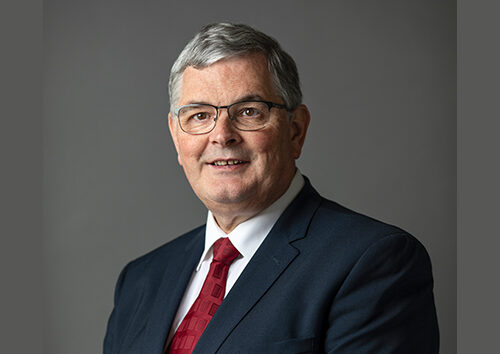8 March 2016 | Binfield, UK [Helen Pearson] With Tuesday, 8 March being International Women’s Day it seemed appropriate that ‘The Impact of Disasters on Women’ was the title for the evening March Diversity Lecture at Newbold College.
 The lecturer was Ian Ridley, a Newbold alumnus and, for the last nine years, Senior director for Humanitarian Operations with World Vision International. His wide knowledge of the vocabulary of disaster both natural and man-made is derived from his experience during the last two and a half decades working on the ground in complex humanitarian response programmes. More recently he has managed personnel, procedures and relations with other agencies.
The lecturer was Ian Ridley, a Newbold alumnus and, for the last nine years, Senior director for Humanitarian Operations with World Vision International. His wide knowledge of the vocabulary of disaster both natural and man-made is derived from his experience during the last two and a half decades working on the ground in complex humanitarian response programmes. More recently he has managed personnel, procedures and relations with other agencies.
 Most of us have a tendency to believe that ‘just because it isn’t happening here, doesn’t mean it isn’t happening’. So Ridley began his lecture by inviting his audience to close their eyes and imagine the effects of a tsunami. “If you’re a fisherman in a boat, you don’t feel much. If you’re a farmer in the hills you feel only the aftermath.” But for women ‒ mothers with young kids, pregnant women or teenage girls, the consequences are likely to be very different. “If you are a woman,” he told his audience in Newbold’s Smith Centre, “you are four times more likely to perish in a disaster. You are likely to have fewer swimming skills, no experience in climbing trees. Your gender affects your fate.”
Most of us have a tendency to believe that ‘just because it isn’t happening here, doesn’t mean it isn’t happening’. So Ridley began his lecture by inviting his audience to close their eyes and imagine the effects of a tsunami. “If you’re a fisherman in a boat, you don’t feel much. If you’re a farmer in the hills you feel only the aftermath.” But for women ‒ mothers with young kids, pregnant women or teenage girls, the consequences are likely to be very different. “If you are a woman,” he told his audience in Newbold’s Smith Centre, “you are four times more likely to perish in a disaster. You are likely to have fewer swimming skills, no experience in climbing trees. Your gender affects your fate.”
In natural disasters, there are also unequal effects on women given their needs related to productive health. They are more vulnerable to exploitation and abuse, especially if they lose the menfolk who protect them and upon whom their status depends. Poor sanitation and a lack of privacy affect women disproportionately. Armed conflict, which breaks up families and sets them on the move, exacerbates domestic and sexual violence. Enforced prostitution and pregnancy, not to mention human trafficking, all make women more vulnerable in general and reduce maternal and child health. Women who become refugees lose the minimal status they may already have. They are increasingly vulnerable to all manner of threats.

So – what can be done to reduce the inequality and vulnerability of women in societies where natural disasters and armed conflict occur? “Earthquakes don’t just open the earth, they open the fault lines in society”, said Ridley. Education for women is the heart of the matter. A raised awareness of maternal health issues and child protection among women makes for a society that is better able to organise and mobilise in the face of disaster. When women don’t realise their full potential, “you’re only using half of your brains”, said Ridley. Humanitarian relief agencies now employ gender advisers whose job is to ask difficult questions about the provision of support for women. “Women used to be seen as a problem for humanitarian work”, Ridley explained. “Now they are valued for their agency and as sources of capacity and resilience.” He finished with the motto, “Strong women, strong world.”
The lecture can be viewed here. [tedNEWS]
tedNEWS Staff: Victor Hulbert, director; Esti Pujic, editor
119 St Peter’s Street, St Albans, Herts, AL1 3EY, England
E-mail: [email protected]
Website: www.ted-adventist.org
tedNEWS is an information bulletin issued by the communication department of the Seventh-day Adventist Church in the Trans-European Division.
You are free to re-print any portion of the bulletin without need for special permission. However, we kindly request that you identify tedNEWS whenever you publish these materials.



